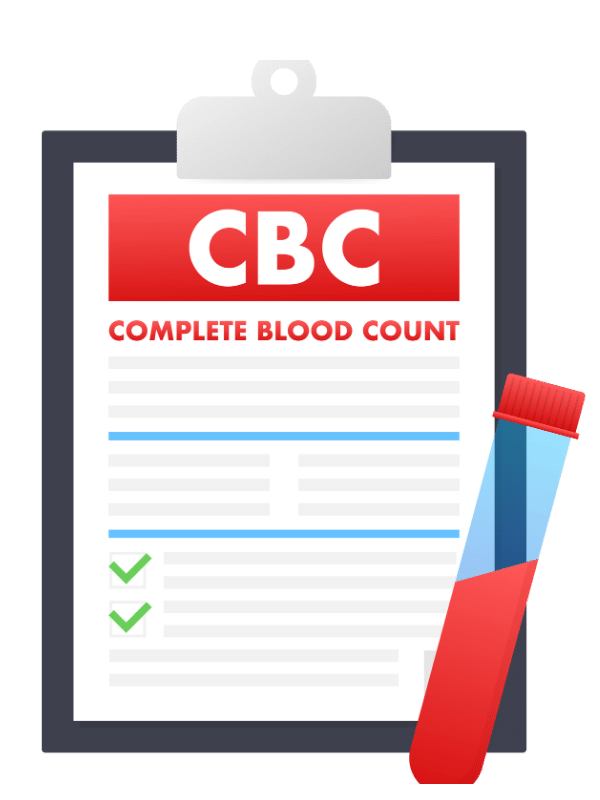
Complete Blood Count ( CBC )
Complete Blood Count (CBC)
“Looking for a quick and reliable way to check your overall health? A Complete Blood Count (CBC) test is your answer! At NizzoCare Health Services, we offer CBC tests that provide valuable insights into your blood cells, including red blood cells, white blood cells, and platelets. Our CBC tests are affordable, accurate, and fast, giving you peace of mind about your health without breaking the bank or waiting for weeks. With our convenient services, you can easily schedule your CBC test online and receive your results promptly. Trust NizzoCare for quality healthcare you can count on!”

A Complete Blood Count (CBC) test is a common blood test that provides essential information about the types and numbers of cells in your blood. It’s a routine part of healthcare assessments and helps diagnose various medical conditions and monitor overall health. Here’s a detailed breakdown of what a CBC test entails:
Red Blood Cells (RBCs):
RBCs are responsible for carrying oxygen from the lungs to the rest of the body and transporting carbon dioxide back to the lungs for exhalation.
The CBC measures the number of RBCs in a sample of blood, known as the red blood cell count.
It also assesses the size and shape of RBCs, which can provide insights into conditions such as anemia or certain blood disorders.
White Blood Cells (WBCs):
WBCs are a crucial part of the immune system, helping the body fight off infections and foreign invaders.
The CBC determines the total number of WBCs in the blood, known as the white blood cell count.
It also evaluates the different types of WBCs, such as neutrophils, lymphocytes, monocytes, eosinophils, and basophils. An abnormal distribution of these cells can indicate various infections, inflammatory conditions, or blood disorders.
Platelets:
Platelets are small cell fragments that play a vital role in blood clotting and preventing excessive bleeding.
The CBC measures the number of platelets in the blood, known as the platelet count.
Abnormal platelet counts can indicate bleeding disorders or bone marrow problems.
Hemoglobin (Hb) and Hematocrit (Hct):
Hemoglobin is a protein in RBCs that carries oxygen throughout the body. Hematocrit measures the percentage of blood volume occupied by RBCs.
The CBC assesses hemoglobin levels and hematocrit values, which can indicate anemia or dehydration.
Mean Corpuscular Volume (MCV), Mean Corpuscular Hemoglobin (MCH), and Mean Corpuscular Hemoglobin Concentration (MCHC):
These parameters provide information about the size, volume, and hemoglobin content of RBCs.
Abnormal values can help diagnose different types of anemia and other blood disorders.
Red Blood Cell Distribution Width (RDW):
RDW measures the variation in the size of RBCs.
High RDW values may indicate certain types of anemia or other underlying health conditions.
CBC tests are typically performed using automated analyzers in clinical laboratories. The results are interpreted by healthcare professionals, who consider the patient’s medical history, symptoms, and other diagnostic tests to make an accurate diagnosis. Overall, a CBC test is a valuable tool for assessing overall health, detecting underlying medical conditions, and monitoring the response to treatment.
Contact Us

